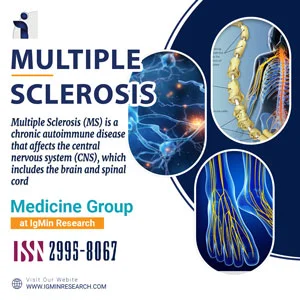About
Multiple Sclerosis (MS) is a complex, chronic neurological condition that affects the central nervous system, primarily the brain and spinal cord. Characterized by immune-mediated attacks on the protective myelin sheath covering nerve fibers, MS disrupts communication between the brain and the body, leading to a wide range of physical, cognitive, and emotional symptoms. This multifaceted disease manifests differently in each individual, making its diagnosis and management a significant challenge for healthcare providers.
Advancements in research and treatment have transformed the landscape of MS care, offering hope to patients through improved diagnostic tools, disease-modifying therapies, and rehabilitative strategies. MS is at the forefront of neuroimmunology, driving innovations in understanding autoimmune processes and neuroprotection. Collaborative efforts across neurology, physiotherapy, and mental health disciplines are essential in empowering individuals living with MS to maintain quality of life and functional independence.

Why publish with us?
Global Visibility – Indexed in major databases
Fast Peer Review – Decision within 14–21 days
Open Access – Maximize readership and citation
Multidisciplinary Scope – Biology, Medicine and Engineering
Editorial Board Excellence – Global experts involved
University Library Indexing – Via OCLC
Permanent Archiving – CrossRef DOI
APC – Affordable APCs with discounts
Citation – High Citation Potential
Which articles are now trending?
Research Articles
- Examining the Causal Connection between Lipid-lowering Medications and Malignant Meningiomas through Drug-target Mendelian Randomization Analysis
- Kinetic Study of the Removal of Reafix Yellow B8G Dye by Boiler Ash
- Wishful Thinking or Valuable Forecasts? The Value of Policy Rate Predictions in Sweden
- The Examination of Game Skills of Children Aged 5-6 Years Participating in Movement Education
- Analysis of the State of Moisture Control to Ensure and Regulate the Quality of Grain and Grain Products
- Zinc Supplementation in Anorexic Children with Vomiting Syndrome: Evaluation from a Randomized Controlled Trial in Vietnam
Advertisement







